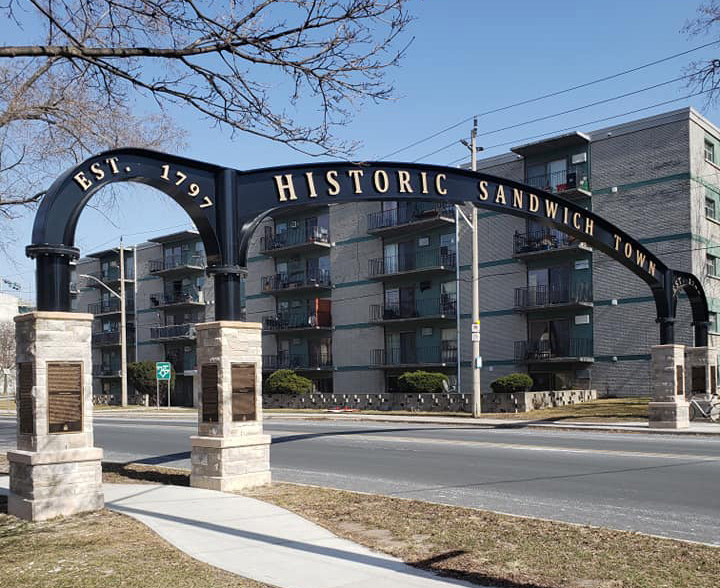Henry & Mary Bibb Plaque

Henry and Mary Bibb both began their lives in the United States, but under markedly different circumstances. Henry Walton Bibb (1815-54) was born in Kentucky to an enslaved mother Mildred Jackson and an enslaver father Senator John Bibb. He grew up with the brutality of being enslaved, made many attempts at escape, and finally reached Detroit in 1840. He soon became a well-known anti-slavery orator and writer.
Mary Elizabeth Bibb (1820-77) was raised by free Black parents in a Quaker community in Rhode Island. She became a teacher after graduating from the Massachusetts State Normal School in 1843. The pair met at an abolitionist meeting in New York in 1847 and were married the following year in Ohio.
In 1849, Henry published his autobiography Narrative of the Life and Adventures of Henry Bibb, an American Slave Written by Himself. In 1850, when the Fugitive Slave Act was passed in the United States both formerly enslaved persons and persons born free were in danger of being forcibly enslaved. With its passing, the couple moved to Sandwich (now part of Windsor). There, they founded a school for Black children where Mary taught. The couple also started a newspaper called Voice of the Fugitive which was the first newspaper in Ontario to be published by persons of African descent.
In Sandwich, the Bibbs provided many freedom seekers with food, clothing and assistance towards finding housing and employment. They were instrumental in the success of the Refugee Home Society which helped many formerly enslaved persons to purchase a home, land or a farm in Essex County.
See the The Voice of the Fugitive newspaper archives here.
Mary Elizabeth Bibb (1820-77) was raised by free Black parents in a Quaker community in Rhode Island. She became a teacher after graduating from the Massachusetts State Normal School in 1843. The pair met at an abolitionist meeting in New York in 1847 and were married the following year in Ohio.
In 1849, Henry published his autobiography Narrative of the Life and Adventures of Henry Bibb, an American Slave Written by Himself. In 1850, when the Fugitive Slave Act was passed in the United States both formerly enslaved persons and persons born free were in danger of being forcibly enslaved. With its passing, the couple moved to Sandwich (now part of Windsor). There, they founded a school for Black children where Mary taught. The couple also started a newspaper called Voice of the Fugitive which was the first newspaper in Ontario to be published by persons of African descent.
In Sandwich, the Bibbs provided many freedom seekers with food, clothing and assistance towards finding housing and employment. They were instrumental in the success of the Refugee Home Society which helped many formerly enslaved persons to purchase a home, land or a farm in Essex County.
See the The Voice of the Fugitive newspaper archives here.
